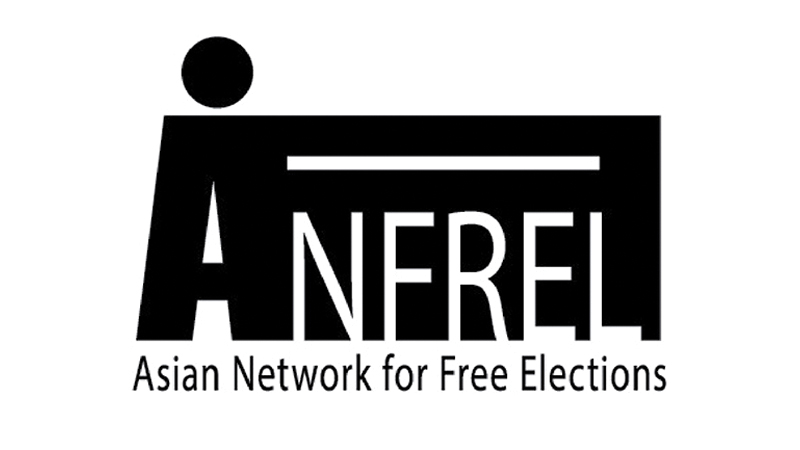The international election observer groups yesterday congratulated the people of Sri Lanka on the successful, largely peaceful and orderly conduct of the ‘Presidential Election 2019’.
Launching the interim report of Asian Network for Free Elections (ANFREL), the only Asian international non-governmental organization accredited by the Election Commission for the November 16 polls, ANFREL Head of Mission Damaso Magbual together with observers Rona Ann Caritos and Elberel Davaa told reporters in Colombo that “the high voter turnout of 83.9 percent was a clear indication of the country’s commitment to staying the course of achieving genuine democratic and mature political processes”.
They observed that it was a proud moment for Sri Lankans that the election concluded without any major electoral violations or violent activities. Responding to questions, the international observers also said that they did not encounter any major reports on the discouraging or intimidating of ethnic minorities from voting except for a few isolated incidents and that they heard no reports of military intimidation in the North and the East.
“The 83.9 percent turnout is the reinforcement of public faith in the ballot and the prospects of change it can bring,” they commented.
Carrying out monitoring in different parts of Sri Lanka, the ANFREL mission consisted of 9 long-term and 29 short-term international election observers and two electoral analysts.
Its monitoring covered 31 polling stations during the postal voting and 507 polling stations on Election Day.
ANFREL will issue a comprehensive mission report in January next year including an assessment of the post-election environment and a set of recommendations for consideration of electoral stakeholders.
In its interim report, ANFREL highlighted the importance of introducing campaign finance laws, guidelines on the use of social media during electoral campaign period, policies to curb the spread of fake news and hate speech, a stronger self-regulation of media and a more fairness guideline during campaign period to cover both public and private media.
The report said:
“Given the lack of legal framework to control campaign spending, the playing field is heavily tilted towards moneyed candidates. Absence of campaign finance laws to regulate the spending of political parties and candidates and monitor the individual or organizational contributions to their campaigns allowed unchecked and excessive spending in the election. Sri Lanka is a signatory to the UN Convention against Corruption and it emphasizes that all States must enhance transparency in the funding of candidatures for elected public office and the political parties.
“Another vacuum is the lack of a legal and policy framework to govern the use of online media in elections. The Media Guidelines issued by the Election Commission should be applicable to administrators of social media sites and their users.”
“A concern expressed during the campaign was the use of social media for misinformation and disinformation. ANFREL hopes that measures to effectively tackle misinformation and disinformation through social media are soon developed in the country. This involves clear guidelines on content moderation of platforms such as Facebook, Twitter and Google.
Elaborating on the media behavior, Magbual said: “Both state and private media outlets are widely perceived by the voters as partial to their favoured candidate. The problem of bias in the media could be largely attributed to the media ownership where political ties affect the self regulation mechanism of media outlets.
The bias and proliferation of disinformation in the media adversely affected the equal playing field among the election candidates and above all, undermined the people’s right to know. If media outlets are engaged in responsible media practice they should give editorial independence.
Media associations can come forward for self-regulation, and if it does not happen some kind of guidelines must be introduced without compromising freedom of expression”.



Add new comment